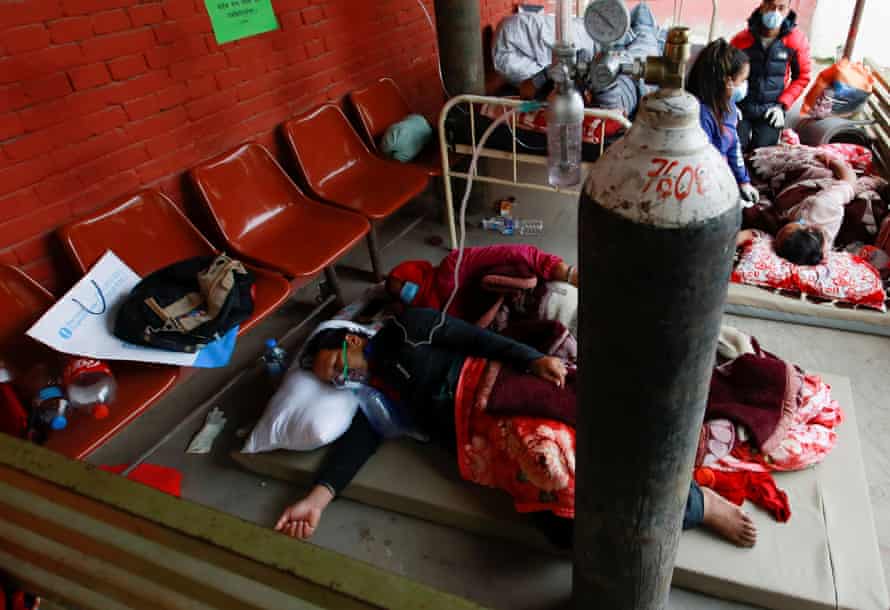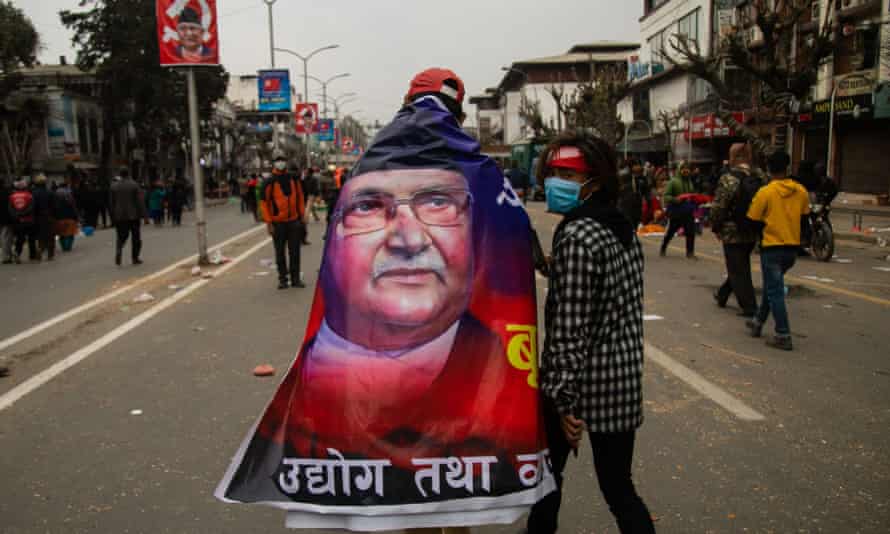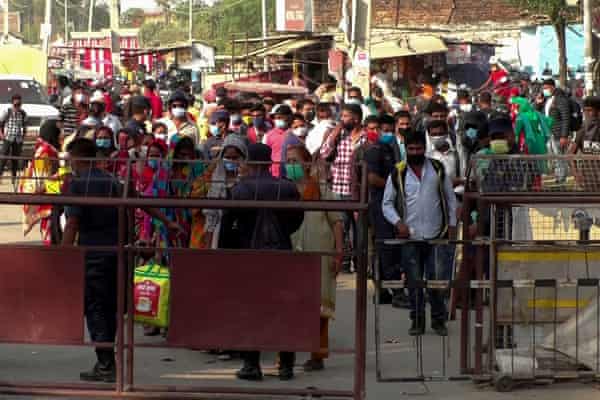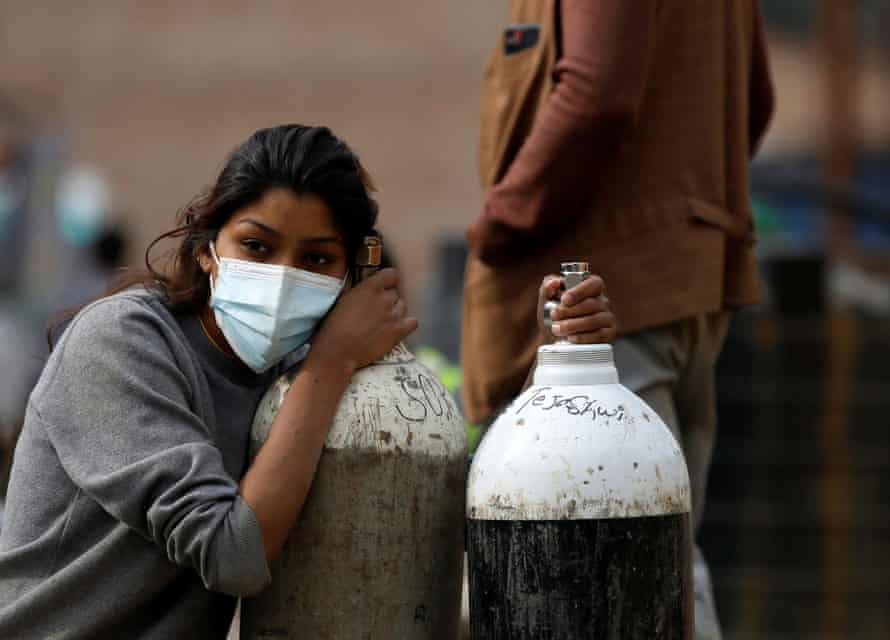Waiting for India’s Covid wave to break over Nepal has been as painful as it was inevitable. Now that it’s happening, this country of 30 million people is even more hapless and unprepared than India seems to have been.
My friend, Dr Rakshya Pandey, a pulmonary care doctor in Kathmandu, says that during her long shifts, the thought sometimes enters her mind: ‘‘Where would I go if I get sick? Where would I take my mother if she gets the virus?”
There are no hospital beds available, even for doctors and their families. Covid has exposed everybody’s vulnerability, except our leaders. Hospitals have run out of oxygen, and desperate calls on social media appealing for healthcare fill everyone’s feeds. Oxford University’s data tracking site shows a staggering 668% increase in confirmed Covid cases in the two weeks to 1 May, compared with the previous fortnight. On that day, the Red Cross reported that, nationally, 44% of all tests were positive.

“I am trained not to sleep for 48 hours, but I am not trained to send patients away without help,” Pandey says. “And we know that things are just going to get worse.”
For the first time in years, I’ve been away from Nepal as a crisis hit. As time got suspended in what seemed to be an endless lockdown here in the UK, I watched my friends back home with envy; my social media feed was full of people dining in crowded restaurants, and attending parties maskless. While schools remained closed for most of the year, everything else opened: crowded markets and jatras, festivals where communities gather to celebrate everything, from the rain to the harvest. Nepalis even travelled to India to participate in jatras; thousands of Hindus visited the now infamous Kumbh mela in India’s northern state of Uttarakhand. Pictures of Gyanendra Shah, the former king of Nepal, bathing in the Ganges with Hindu religious ascetics hailing him as the only Hindu king of the world did the rounds on social media. The ex-royal couple returned with the virus, and many of their connections have also tested positive. Another meaning of jatra in Nepali is chaos.
Or you can translate jatra as “carnival”. For several months now Nepal’s leaders have been conducting their own jatra, which has kept the Nepali media and citizens absorbed. Instead of protecting public health, Nepal’s prime minister, Khadga Prasad Oli, has been busy with his own theatrics. In between spreading falsehoods – such as telling Nepalis to manage Covid with herbal remedies such as turmeric water or guava leaf tea – he dissolved parliament, which was later restored by the supreme court. In his latest act of his solipsism, he called a confidence vote in his own government amid convoluted power struggles which would embarrass Byzantium. This week he lost that vote, with 124 members of the lower house of parliament voting against him and just 93 voting for him on 10 May.

There are fewer than 600 ventilators for the entire country. The University of Washington’s Institute for Health Metrics and Evaluation predicts that Nepal will need well over 10,000 ventilators by 24 May. Health officials confirm that the resources to operate ventilators are equally limited.
“Even if we have the ventilators, what can we do without oxygen?” said one official, as his phone kept ringing with pleas for more oxygen. My social media feed is also full of calls for ICU beds and the therapeutic drug Remdesivir. From 12 May, Nepal joins India on the red list for travellers from England.
“Besides ambulances, we hear helicopters now, coming to evacuate the rich,” says Kanchan Jha, from Birgunj, a town near the Indian border. His brother, a doctor, has been getting calls to visit villages “where there is at least one sick person in each family”. The poor have already been left to their own devices.

The relationship between India and Nepal is familial and dysfunctional. In January, India donated 1m doses of AstraZeneca vaccine and Nepal bought another 2m from the Serum Institute of India. But, just as 1% of Nepal’s population got fully vaccinated, Covid overwhelmed India. As India was gasping for breath, Nepal, in a move that embarrassed many, still looked to India to provide oxygen.
Over a million people, including my parents, who are in their 70s, don’t know when or if they will get their second shot. News of businessmen close to the prime minister allegedly derailing vaccine imports earlier this year after a disagreement over kickbacks has shocked many people. But others are not surprised.
“It has come to the surface because some in power did not get a share of the pie,” a friend said.

Nepal’s health minister, Hridayesh Tripathi, announced last week: “As the number of infections has increased beyond the control of the health system, it has become tough to provide hospital beds for care.”
The ministry has appealed to citizen bodies to help. On social media, a senior government official sent an urgent plea to Nepali embassies to start vaccine diplomacy. Then, on Saturday, the prime minister went on CNN and said that the Covid-19 situation in Nepal was under control. Everyone can see it’s not true.
“People are carrying oxygen on scooters and there are others who are still holding wedding parties,” my relative complained. We get the leaders we deserve, I think.
“One of the electrical crematoriums that is broken needs some Indian technicians,” a senior government official tells me.
“And we’ll soon run out of wood to cremate bodies.”
This content first appear on the guardian

Really impressed! Everything is very open and very clear clarification of issues. It contains truly facts. Your website is very valuable. Thanks for sharing.
Writing with style and getting good compliments on the article is quite hard, to be honest.But you’ve done it so calmly and with so cool feeling and you’ve nailed the job. This article is possessed with style and I am giving good compliment. Best!
I would like to thank you for the efforts you have made in writing this article. I am hoping the same best work from you in the future as well. In fact your creative writing abilities has inspired me to start my own Blog Engine blog now. Really the blogging is spreading its wings rapidly. Your write up is a fine example of it.
Took me time to understand all of the comments, but I seriously enjoyed the write-up. It proved being really helpful to me and Im positive to all of the commenters right here! Its constantly nice when you can not only be informed, but also entertained! I am certain you had enjoyable writing this write-up.
Excellent Blog! I would like to thank for the efforts you have made in writing this post. I am hoping the same best work from you in the future as well. I wanted to thank you for this websites! Thanks for sharing. Great websites!